South Florida oncologists are seeing an alarming rise in a hard-to-detect breast cancer that is increasing at more than triple the rate of other breast cancers.
Invasive lobular carcinoma, a subtype of breast cancer, concerns oncologists for several reasons: It doesn’t present as a lump the way the more common ductal carcinoma often is found, it is hard to spot on a mammogram, and it doesn’t respond well to chemotherapy. It also tends to spread to the lining of the gastrointestinal and urinary tracts, as well as the ovaries (ductal carcinoma tends to spread to the lymph nodes). And at 10 years, women with invasive lobular carcinoma that spreads to a secondary site are half as likely to be alive as their counterparts with ductal breast cancer.
Rather than a lump, this form of breast cancer grows in a linear or dispersed pattern. It looks more like skin thickening or dimpling.
Dr. Alia Abdulla, a breast surgical oncologist at Broward Health, said the increase in this subtype of breast cancer illustrates why mammograms are essential. “In general, you can still see changes on the mammogram. It may not be a lump. It might be more minimal or subtle at times, but you can see changes.”
If invasive lobular carcinoma is caught on a mammogram, the tumor usually is at an early stage, she said. “If you wait until you feel or see something, it’s likely at a later stage.”
At Baptist Health Lynn Cancer Institute in Boca Raton, medical oncologist Dr. Angelina The said invasive lobular carcinoma can appear as a distortion or asymmetry on a mammogram. “If they see something like that, more advanced imaging is recommended.”
Signs a woman may notice are redness, pain or retraction of skin, she said. “Because it’s not contained and has a sneaky growth pattern, you have to be careful with this and have a lower threshold for further testing.”
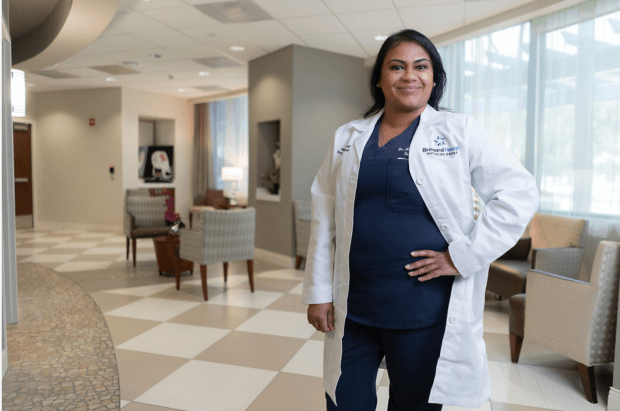 Dr. Alia Abdulla, a breast surgical oncologist at Broward Health (Broward Health/Courtesy)
Dr. Alia Abdulla, a breast surgical oncologist at Broward Health (Broward Health/Courtesy)
On Oct. 7, the American Cancer Society released a report on the increase in invasive lobular carcinoma. Findings show an estimated 33,600 women will be diagnosed with it this year.
“Our study underscores the need for much more information on lobular cancers across the board, from genetic studies to clinical trial data, so that we can improve outcomes for the increasing number of women affected with this cancer,” wrote co-author Rebecca Siegel of the American Cancer Society.
Abdulla said invasive lobular carcinoma has a higher recurrence rate and a higher rate of appearing in multiple areas of a breast or both breasts than invasive ductal carcinoma, the more common breast cancer, accounting for about 80% of cases.
The at the Baptist Health Lynn Cancer Institute, says those diagnosed are most often treated with medications that act as hormone blockers. “It is very hormone-dependent, so the treatment centers on ways to reduce hormone stimulation to the cells,” The said.
White women have the highest incidence rate of ILC (14.7 per 100,000 women), with Black women ranking second (11 per 100,000).
Abdulla says in South Florida, she has seen it mostly in women ages 40 to 75.
Breast cancer continues to be the most common cancer in women. October is Breast Cancer Awareness Month, and many events in South Florida offer free or low-cost mammograms.
Free oral rinse for local cancer patients
ioTech International™, headquartered in Boynton Beach, has developed an oral rinse that provides fast pain relief and promotes speedier healing — and they’re giving it away free to all cancer patients this month in honor of Breast Cancer Awareness Month. The oral rinse is designed to bring relief to cancer patients suffering from painful mouth sores caused by chemotherapy and radiation treatments. Patients may walk into the Boynton Beach headquarters, weekdays from 9 a.m. to 5 p.m., and receive a complimentary bottle. The company is located at 170 Commerce Road, Suite 1, Boynton Beach.
Alzheimer’s blood test available at primary care offices
If you suspect you or a loved one has Alzheimer’s, take note: a new blood test will soon become available in primary care doctors’ offices.
The U.S. Food and Drug Administration has just cleared the Elecsys pTau181 tests to help in the initial assessment of Alzheimer’s disease. The blood test measures the level of tau, one of the key markers of amyloid plaque seen in people with Alzheimer’s Disease.
The test has been cleared for use in any doctor’s office and is intended for patients 55 and older who show signs or have complaints of cognitive decline (memory loss). It is designed to help rule out Alzheimer’s disease in the early phases and determine whether patients should see a neurologist.
“By bringing Alzheimer’s blood-based biomarker testing into primary care, we can help patients and their clinicians get answers sooner to support them earlier in their journeys,” Brad Moore, president and CEO of Roche Diagnostics North America, said in an announcement about the FDA approval.
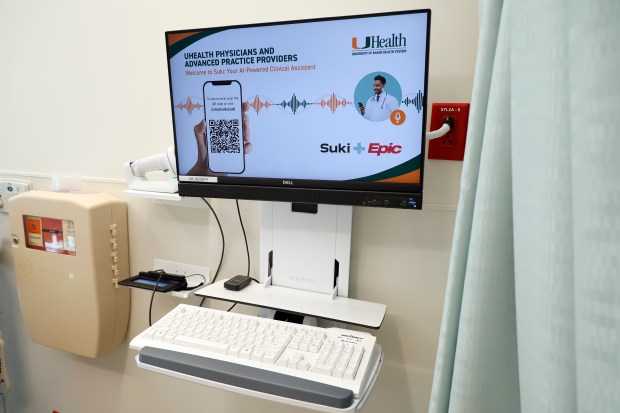 A screen related to the artificial intelligence capabilities of the terminal is shown inside an infusion bay at UHealth SoLé Mia Medical Center in North Miami. (Amy Beth Bennett / South Florida Sun Sentinel)
A screen related to the artificial intelligence capabilities of the terminal is shown inside an infusion bay at UHealth SoLé Mia Medical Center in North Miami. (Amy Beth Bennett / South Florida Sun Sentinel)
A new AI-driven medical center in South Florida
In an up-and-coming area of North Miami called SoLé Mia, the University of Miami Health System has opened a fully AI-enabled medical center that aims to draw patients from throughout South Florida.
The high-tech medical center is not a hospital but an outpatient facility that offers primary care and 20 types of specialty care. Vandana Pathak, assistant vice president of Ambulatory Services at UHealth SoLé Miami, notes that AI has been integrated into various areas of patient care, from check-in to treatment. “The idea is to ensure everything is seamless as soon as patients enter the building,” she said.
Within the center, physicians use AI-enabled tools to reduce paperwork, improve documentation and coding accuracy, and focus more fully on patient care. MRIs use AI-driven algorithms to cut down the amount of imaging time. “We are using AI to be more forward thinking and improve the overall efficiency of workflow so we can provide a better experience for our patients,” Pathak said.
Pathak said patients were involved in contributing to the design of the SoLé Mia medical center — providing input from how furniture is situated to where certain services are located within the building (the eye clinic is on the first floor, for example).
The new medical center, which opened to patients Sept. 30, has 110 exam rooms, 10 operating rooms and 33 clinical cancer treatment units. Inside the medical center are offices for physicians from Sylvester Comprehensive Cancer Center, Bascom Palmer Eye Institute, and Desai Sethi Urology Institute, along with specialists in cardiology, neurology, otolaryngology, endocrinology, gastroenterology, dermatology and rehabilitation.
A new collaboration with Hospital for Special Surgery, which also has a Palm Beach location, provides advanced orthopedic care.
UHealth notes the new center will serve as a tech model for the future of its health system, with future additional sites in Pinecrest and South Florida.
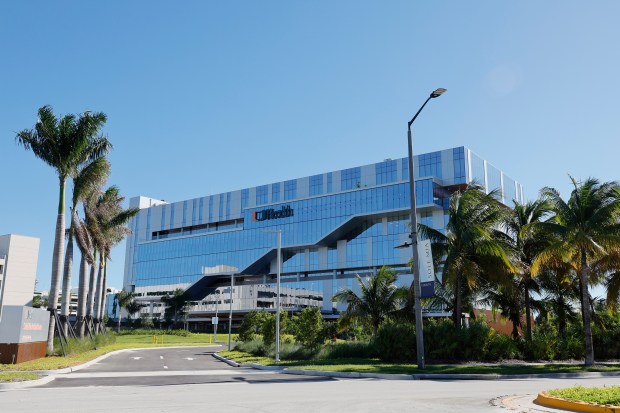 UHealth SoLé Mia Medical Center in North Miami. (Amy Beth Bennett / South Florida Sun Sentinel)
UHealth SoLé Mia Medical Center in North Miami. (Amy Beth Bennett / South Florida Sun Sentinel)
Barry University wants to help more healthcare professionals graduate
It is no secret that Florida faces a severe shortage of healthcare professionals as its population ages.
Now, Barry University in Miami Shores is expanding and strengthening its health science program to help build the workforce.
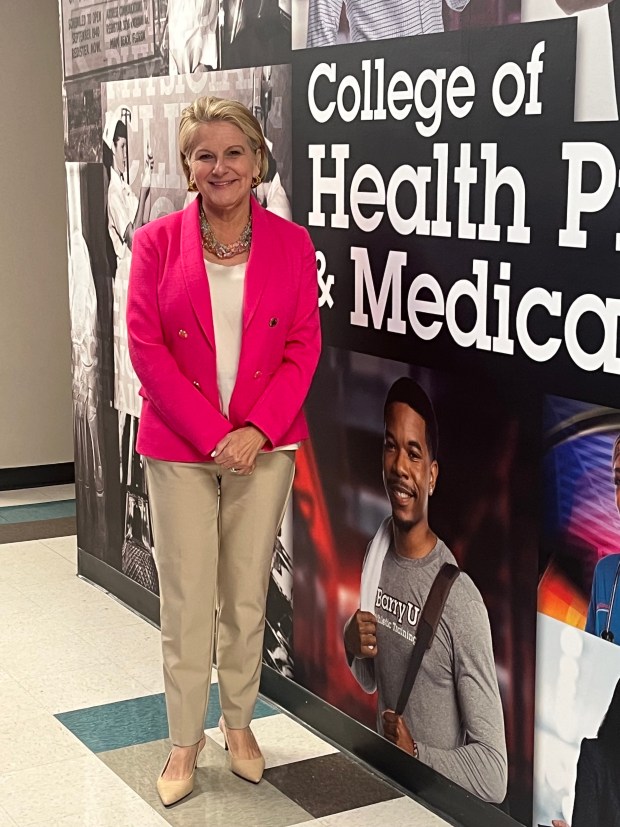 Dr. Eneida Roldan, executive dean of Barry University’s College of Health Professions and Medical Sciences. (Cindy Krischer Goodman/South Florida Sun Sentinel)
Dr. Eneida Roldan, executive dean of Barry University’s College of Health Professions and Medical Sciences. (Cindy Krischer Goodman/South Florida Sun Sentinel)
This summer, the university brought in Dr. Eneida Roldan, a well-known Hispanic healthcare leader and educator. With Roldan at the helm, Barry has announced the most significant realignment of its College of Health Professions and Medical Sciences in over a decade. The university introduced three new deans to lead its schools of Nursing, Podiatric Medicine, and Mental Health and Social Work.
“As healthcare grows more complex, our students must be able to think and work across boundaries,” said Roldan, executive dean of the College of Health Professions and Medical Sciences. “By uniting Barry’s health programs under one vision and empowering new leadership in nursing, podiatric medicine, and mental health, we are preparing compassionate, competent graduates who are ready to serve a community in urgent need of care.”
Barry also announced strategic partnership agreements with Larkin Health and Independent Living Systems to provide clinical training and research opportunities for its students.
The university is known for its School of Nursing and School of Podiatry, but also has programs for sports psychologists, physician assistants, and a new EMT academy. On the master’s level, it has programs in anesthesiology, occupational therapy, and mental health counseling.
Along with its local campus, Barry University has a campus in St. Petersburg, where it also has programs for health professionals.
“We are looking at the evolution of healthcare and are focused on the education of future professionals,” Roldan said. “As we evolve, we will add other programs and incorporate new methodologies of how to teach our next generation.”
 Healthcare professionals gather at Barry University’s Sept. 30 news conference in Miami Shores. (Barry University/Courtesy)
Healthcare professionals gather at Barry University’s Sept. 30 news conference in Miami Shores. (Barry University/Courtesy)
Breakthrough hand surgery for a Boca Raton golfer
For Jerry Spielman of West Boca Raton, an avid golfer, his life changed when he developed severe hand pain, tingling fingers, and a weakening grip. He feared his lifelong passion for golf might be over. A specialist diagnosed Spielman with cubital tunnel syndrome, a painful nerve compression in the arm that affects countless people but is often overshadowed by the better-known carpal tunnel syndrome. Traditionally, treatment requires surgery under general anesthesia, large incisions, and weeks of immobilization. But Spielman opted for a different route.
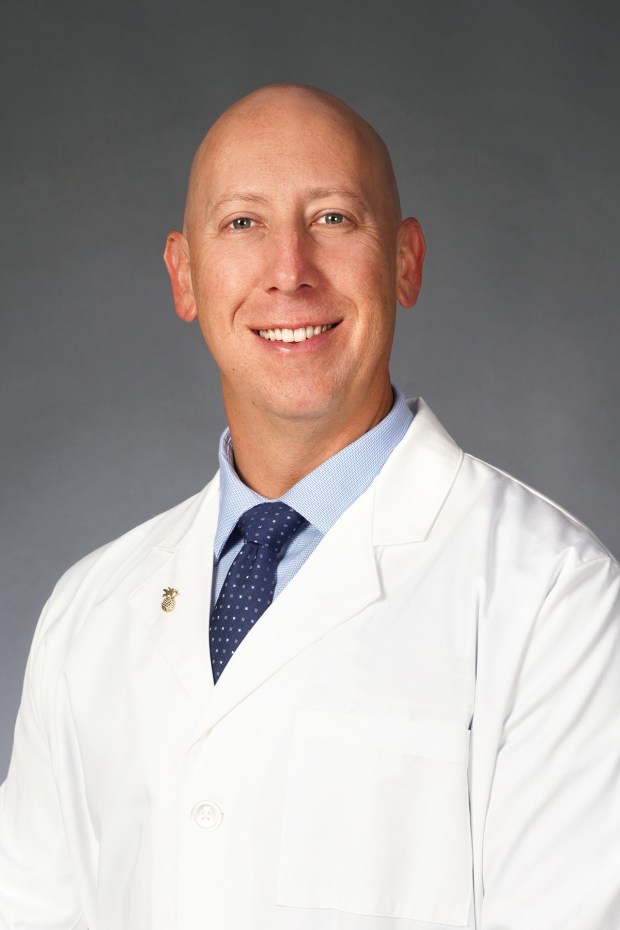 Orthpedic hand surgeon Dr. Michael Cohn
Orthpedic hand surgeon Dr. Michael Cohn
At Baptist Health Orthopedic Care, Dr. Michael Cohn, an orthopedic hand and upper extremity surgeon, performed a minimally invasive procedure requiring only local anesthesia and a tiny incision. With this procedure, known as ultrasound-guided cubital tunnel release, patients are awake, recovery is rapid, and pain is minimal.
“It’s a new procedure that is a big win for patients,” Dr. Cohn says. “They can avoid all of the time and costs associated with the medical clearances and preoperative testing that are usually necessary before a big surgery. We can release the nerve through a small incision while the patient is awake. There is very little bleeding, and they recover very, very quickly.”
Just weeks later, Spielman says he is pain-free, fully mobile, and cleared to get back on the greens.
South Florida Hospital News
Delray Medical Center has earned a new accreditation that recognizes it for high quality, specialized emergency care for older adults in South Florida. The hospital has earned Level 3 (Bronze) accreditation from the American College of Emergency Physicians (ACEP) as part of the Geriatric Emergency Department Accreditation (GEDA) program. Level 3 accreditation indicates that Delray Medical Center meets essential criteria, including having both a physician and nurse with specialized geriatric training on staff, implementing geriatric-specific policies, and maintaining a continuous quality improvement process focused on senior care.
Auto magnate Rita Case has donated $2 million to the Cleveland Clinic Weston. The contribution will support research, education, patient care, programmatic and capital needs of Cleveland Clinic Weston Hospital. In recognition of this gift, the hospital has named the Rita and Rick Case Corridor in its primary multispecialty and ambulatory surgery center, which serves as a prominent pathway for patients, visitors and caregivers.
Have a comment or health tip? South Florida Sun Sentinel health reporter Cindy Goodman can be reached at cgoodman@sunsentinel.com or 954-304-5908.

